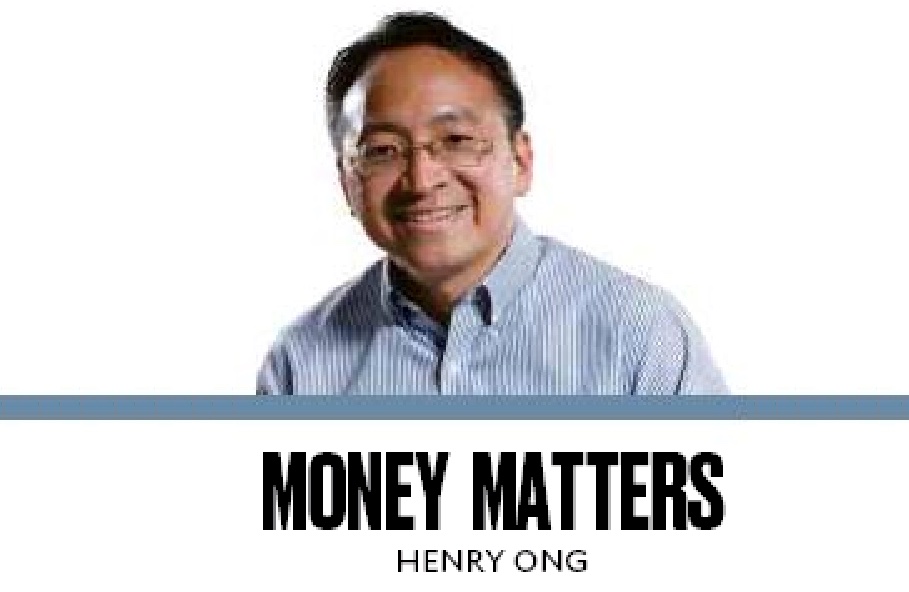Why is the stock market falling when the economy is growing?

There is no doubt that the Philippine economy continues to demonstrate resilience and strength this year, marked by an impressive year-to-date gross domestic product (GDP) growth rate of 5.5 percent, making it the fastest growing economy in Asia.
Market analysts are confident that, with the continued rise in consumer spending particularly this holiday season, the economy is poised to end the year with a GDP growth rate of 6 to 7 percent. The growth in corporate earnings this year mirrors the expansion of the economy. Out of the 30 blue-chip companies listed on the Philippine Stock Exchange (PSE) index, 21 have reported higher earnings for the nine-month period compared to last year, contributing to an impressive average earnings growth rate of 39.3 percent in the market.Conventional wisdom tells us that a growing economy tends to coincide with a rising stock market, as increased spending leads to higher earnings which, in turn, drive stock prices upward.
But what we saw this year was a falling stock market, with the PSE index losing as much as 1,126 points or 16 percent from its peak in January. The positive changes in the fundamentals have not clearly manifested in the stock prices.
This goes to prove that market events are not primarily driven by economic realities but by collective feelings and emotions of market players, referred to as social mood.
According to Elliott Wave guru Robert Prechter, the mind behind socionomics theory, many people commonly think that social actions, like war, for example, create specific moods such as fear and anger.
But in socionomics, the idea is the other way around. It suggests that our collective mood is what actually propels our actions. So, instead of war directly causing fear and anger, socionomics tells us that it’s the collective feeling of fear and anger among people that causes conflicts.
Our common belief dictates that, during an economic recession, businessmen tend to be cautious in their investments. However, in socionomics, it is the collective cautious mood of business people that causes the economy to fall into a recession.
In politics, we always assume that a popular president makes the general population happy. Yet, in socionomics, it is the happy population that makes a president popular.
By observing events unfolding around us, we gain insights into the broader social mood and can anticipate the social actions that may arise from the prevailing collective sentiment.
If the trend is going toward a positive social mood, we can anticipate heightened tolerance, liveliness and optimism among people. But when the trend is leaning toward a negative social mood, we may observe increased feelings of malevolence and anger. People are likely to become more fearful and pessimistic under such circumstances.
If all of these traits accompany trends in social moods, individuals act on these feelings. For instance, in the stock market, if the mood is pessimistic, people may sell their stocks to reflect their sentiments. Certain actions take time, such as closing down a business or laying off people, and these processes could span a few months.
If the economy is growing while the stock market is falling, could it be that the prevailing sentiment is leaning toward a negative social mood? When we observe events around us, such as the ongoing wars in Ukraine and the Middle East, the rise in crime, and the increased levels of hate on social media, these confirm the reflections of the current collective mood.
If we use the stock market as an indicator of social mood, the downtrend in the PSE index this year could be indicative of increased fear and uncertainty, which could lead to decreased consumer confidence, reduced business investments, and an overall economic slowdown.
As investors become more risk-averse, businesses may scale back expansion plans, and consumers may cut back on spending, creating a ripple effect that impacts various sectors of the economy.
This, in turn, could contribute to challenges such as lower employment rates, decreased corporate profits and a general economic downturn next year.
As we navigate these shifts, the stock market serves as a barometer, allowing us to anticipate broader economic trends that guide us through the challenges and opportunities that lie ahead.
By recognizing the relationship between social mood and market trends, we can adapt our strategies and make informed decisions to foster stability in the face of market uncertainties.
Remember, it’s not a rising stock market that makes people optimistic; rather, it’s the optimistic people that make the stock market rise. INQ





















